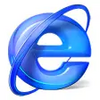Mozilla's Firefox is an open-source internet browser that works on most operating systems
Mozilla's Firefox is an open-source internet browser that works on most operating systems
Popular programs in Web browsers
What is Mozilla Firefox
Although vendors compete aggressively in Internet browser technology and leadership changes hands often, as 2016 moves to a close Mozilla Firefox regained the top spot in multiple categories including ease of use, initial and average startup time as well as a second-place finish in average navigation time from TopTenReviews.com. Free, open-sourced, feature heavy, extensible via an enormous catalog of add-ins, compatible across multiple platforms, and customizable, Firefox comes fully loaded for a pleasant browsing experience.
On the downside, Firefox doesn’t use Microsoft’s Profile Guided Optimization (PGO) so it may not stay fastest for long. Still, with lightning fast load times already, most users probably won’t notice the six percent or so gain in loading new tab pages due to PGO.
Also, Mozilla has not yet added a low-power mode to cut battery drain. While it’s not the best in that class, it’s also not the worst. On the other hand, because Firefox comes from the open-source community, many of the users also make the improvements.
In addition, if you’re in the less than one percent of Windows Phone users, Firefox isn’t yet compatible with your platform.
General Information
Web browser software translates the hypertext markup language (HTML) format used to create modern websites. This allows your computers and other digital devices to display text, images, and videos available on the Internet, web servers, and the file system on your computer.
Key Selection Criteria
Security
A bit of history … The creators of the net wanted an easy way for honest people with huge datasets, like scientists, to connect to one another, share data, and discoveries. Since it wasn’t originally available to everyone, that worked for decades. Limited commercial access to the emerging Internet began in 1979-80. With the decommissioning of the National Science Foundation Net (NSFNET), the last barriers to commercial use of the Internet ended in 1995.
Unfortunately, not everyone qualifies as honest, so theft and other malicious behavior exploded with public access. More fortunately, research on the sort of harmless widgets that eventually morphed into malicious software (malware) began in the late 1940s, so recent news like the mass theft of private information from Yahoo! and the Democratic National Committee give us snapshots of the state of a long arms race.
Luckily, most of us won’t find ourselves targeted by the Russian government, but identity theft and other thefts of our electronic data including passwords, banking, credit cards, and shopping behavior still makes us vulnerable. Keeping in mind that no place is completely safe in cyberspace, ironically even if you disconnect your digital devices from the Internet doesn’t secure them, the ideal browser comes with an arsenal of weapons like those in Firefox. These include anti-spyware, anti-phishing, pop-up blockers, and user-controlled privacy settings. It also has built-in functionality to allow both private browsing and easy clearing of browsing history.
User Friendly Features
Here again, Firefox leads the pack with native features. While there are too many to list them all, the list includes: Autofill/Autocomplete, Automatic Updates, Bookmarks, easy Home Page setup, Find-On-Page Function, Geo-tag Navigation, Integrated Search Engine, Parental Controls, Password Manager, PDF reader, Save Tabs, Spell-Check, Tabbed Browsing, Tracking Blocker, Voice Interaction, and Zoom. By default, Firefox saves your session history if the device loses power. It also gives the open of saving your tabs when you shut the browser down.
In addition, as mentioned before Mozilla built Firefox to be readily extensible via add-ins. The add-in manager automatically opens the catalog. With the Lightbeam add-in, you can even see which services target your browsing for tracking. Further add-ins offer advanced advertising blockers and easy video downloading.
Compatibility
Mozilla’s open-source development group built in compatibility with most digital platforms, including: Windows (XP and later), Mac OS, Linux, Android, and iOS. Expect additional platforms to become available as the open-source community finds uses for them.
Support
Because the user community builds and maintains Firefox, there’s no help desk to call. However, that doesn’t imply a lack of support. Mozilla makes a user guide, tutorials, FAQs, and an online knowledgebase available. In addition, both email and a user forum are available for tougher problems.
Pros
- Fast load times
- Customizable security features
- Extensive add-ins
- Feature rich
- Open source
- Free
Cons
- No Windows Phone
- No low-power mode yet
- Doesn’t use Microsoft PGO





